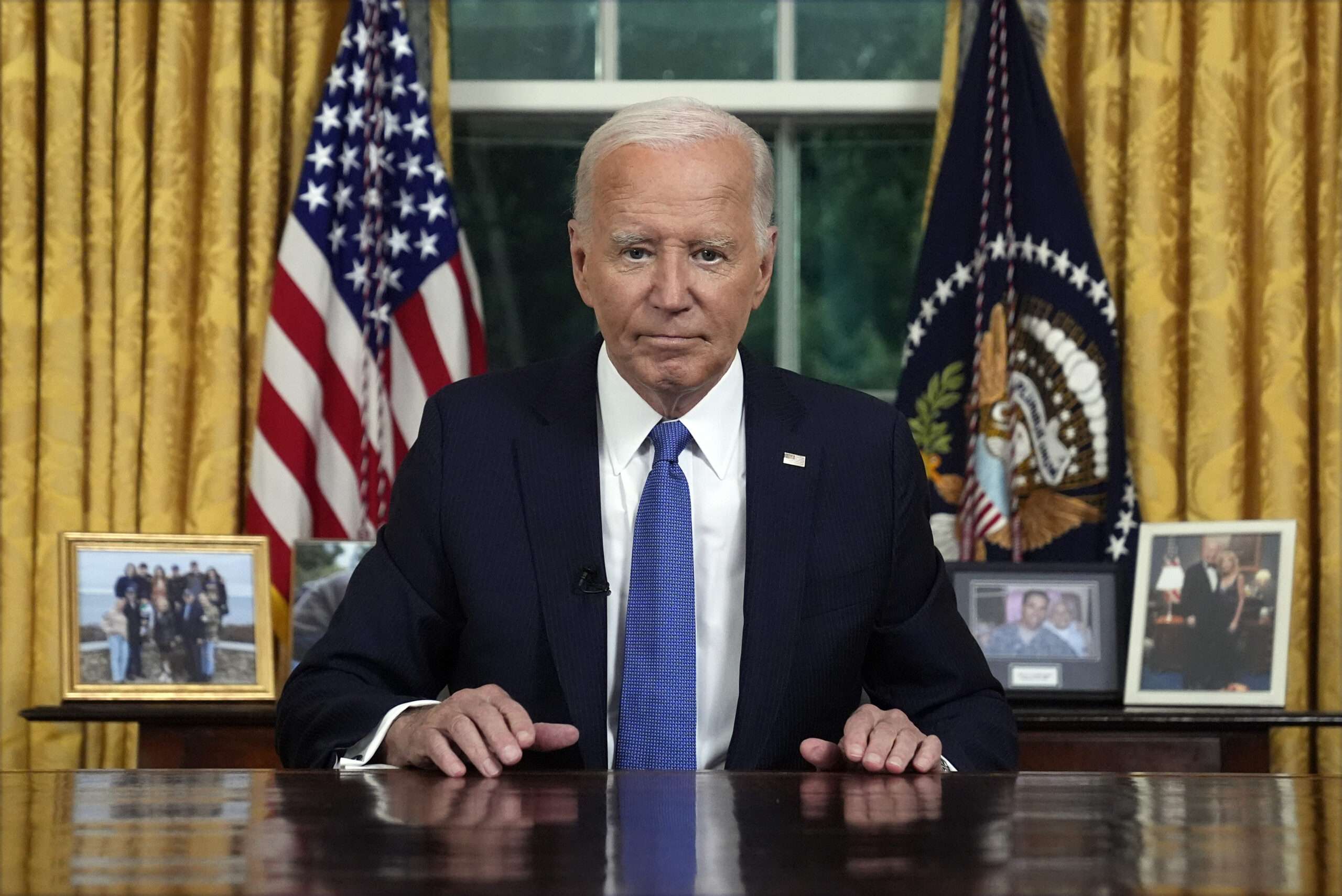Punctuation in Presidential Discourse
The recent controversy surrounding President Joe Biden’s comments regarding Donald Trump’s supporters highlights the increasingly polarized nature of American politics in the lead-up to the election. During a Zoom call with the progressive group Voto Latino, Biden criticized a remark made by comedian Tony Hinchcliffe at a Trump rally in which Puerto Rico was described as a “floating island of garbage.” As he shared his perspective, Biden reportedly stated, “The only garbage I see out there is his supporters…his demonization of Latinos is unconscionable, and it’s un-American.” This remark sparked a swift backlash from conservative commentators and Trump himself, who perceived it as a broad insult aimed at all Trump voters, drawing a parallel to Hillary Clinton’s infamous “deplorables” comment from 2016.
As the debate gained momentum, the White House released a transcript indicating that Biden said “supporter’s” in the possessive form, suggesting that he was only referring to Hinchcliffe and not to Trump supporters in general. This defense sought to clarify Biden’s intent amidst the chaos. However, the fluidity of language and context generally allowed for multiple interpretations of what Biden actually meant, effectively turning his comments into a partisan Rorschach test. Liberal supporters argued that the context indicated a singular reference to Hinchcliffe, while many conservatives accused Biden of denigrating half the electorate, emphasizing a narrative of Democrats belittling Republican voters.
In a striking illustration of how language can resonate differently across political divides, this event raises the stakes of communication in a politically volatile environment. As the election approaches, both major parties are known to hyper-focus on seemingly minor missteps or gaffes, contributing to an atmosphere of anxiety and scrutiny during a critical phase of the electoral cycle. Observers now anticipate that such incidents will only intensify as the election draws nearer, as parties attempt to shape narratives that either crush or bolster their opponent’s credibility.
Among the reverberations of Biden’s comments, Vice President Kamala Harris made her own rallying cry for undecided voters at a location nearby. She presented a unifying message emphasizing freedom versus chaos while addressing key political topics, including foreign policy, border security, and economic matters, such as expanding Medicare benefits and addressing price gouging. Harris also pledged to reform housing regulations, noting the need for expedited construction processes in light of current housing challenges. This move not only aimed to extract votes from undecided constituents but also sought to distance Democratic messages from the recent controversies surrounding Biden, shifting focus back to substantive policy goals.
In Washington, the political landscape was further complicated by the release of a House Judiciary Committee report accusing the Biden administration of using the Federal Trade Commission (FTC) to unduly target Elon Musk’s Twitter (rebranded as X) following the entrepreneur’s acquisition of the social media platform. The report emphasized a rapid escalation in FTC demands for information from Twitter shortly after Musk took ownership, arguing that the timing indicated politically motivated harassment rather than routine regulatory oversight. As dissension within political factions continues to bloom, the implications of these findings are likely to fuel criticisms regarding government overreach and the weaponization of federal agencies for partisan ends.
In a world saturated with controversies and distractions, extending beyond just political gaffes, the atmosphere surrounding the upcoming election underscores a need for voters to examine the substantive issues at play. From poverty to healthcare and regulatory practices, the complexities of governance should take precedence over inflammatory rhetoric. As concerns about political polarization grow, the broader hope among the electorate might be a shift toward addressing the foundational issues affecting everyday Americans rather than getting lost in the chaos of personal critiques and rhetorical missteps. Ultimately, bridging the partisan divide necessitates a focus on collaborative dialogue based on shared interests, ensuring that issues of urgency do not become overshadowed by petty controversies and divisive comments.
Share this content:












Post Comment